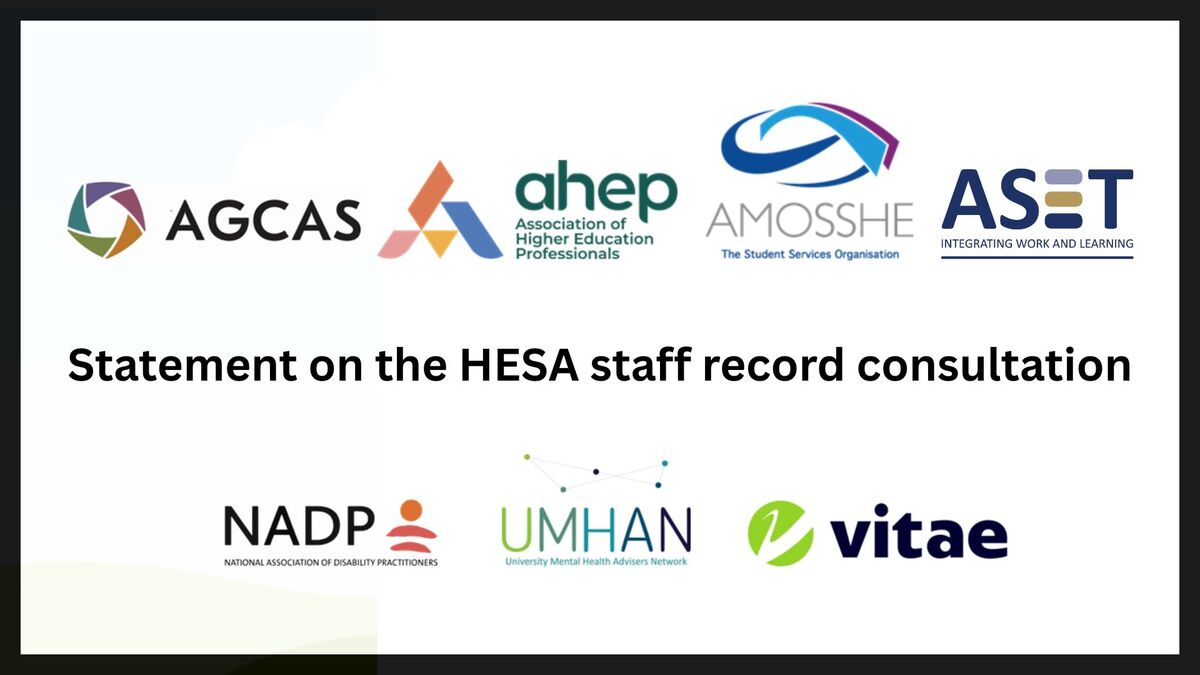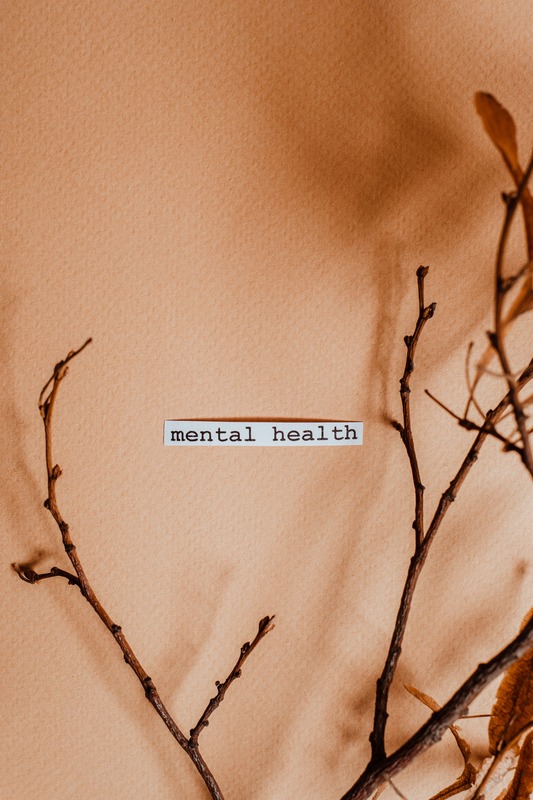
Statement on the HESA staff record consultation (2025)
UMHAN (University Mental Health Advisers Network) is pleased to be one of the signatories to the AGCAS co-ordinated statement on the HESA staff record consultation released on Friday 21st March 2025.
We have over 700 members with over 150 employers, and are the largest organisation dedicated to supporting student mental health practitioners. The majority of our members work in Higher Education (HE).
Our members have a rich and wide range of professional backgrounds and experience such as social work, nursing, occupational therapy, psychology and psychotherapy. The majority of UMHAN members are either Mental Health Advisers (MHAs) or Specialist Mental Health Mentors (SMHMs) – a role funded largely through Disabled Students’ Allowances (DSAs).
MHAs typically co-ordinate support for students experiencing distress or difficulties due to a Mental Health Condition, removing barriers to successful study whilst Specialist Mental Health Mentors (SMHMs) who started joining UMHAN in 2016, help students improve their self-management competencies, as well as being alert to ongoing risk factors.
They come from over 150 different organisations, including both the largest and smallest specialist providers. A large number have crisis response, safeguarding and risk/safety planning in their job descriptions and are recruited because of their specialist training and experience in this area.
We know that our members, and wider student services teams, are delivering a range of remarkable and impactful services and support, which save lives every day, help students achieve their own personal goals and improve student outcomes and achievements.
We have calculated that our members work with around 250,000 students with mental health conditions but much of this work remains unseen and is therefore not appreciated or valued by universities.
UMHAN therefore welcomes this consultation and agree that widening the coverage of the staff record to include technical staff and professional and operational staff is an important move to recognise the range and contribution of all staff working in HE.
We will be submitting our organisational response to the consultation which we will share here.
The full shared statement is available in the box below.
See also the article in Wonkhe written by Claire Toogood of AGCAS.
Signatories:
AGCAS, The Association of Graduate Careers Advisory Services
AHEP, Association of Higher Education Professionals
AMOSSHE, The Student Services Organisation
ASET, The Work Based and Placement Learning Association
CRAC-Vitae, Careers Research & Advisory Centre and the Vitae programme
NADP, National Association of Disability Practitioners C.I.C
UMHAN, The University Mental Health Advisers Network

Non-medical support for disabled students in higher education: Government call for evidence (2024)
UMHAN responded to this call for evidence to help improve non-medical help provision for disabled students in higher education.
The call invited submissions to help the government consider how to improve the way that the non-medical help funded through Disabled Students’ Allowance is delivered to disabled students in higher education.
It both reiterated and elucidated on points UMHAN made in a previous co-written guidance document but with a focus on students with Mental Health conditions and UMHAN members’ experiences.
Quotes in italics in the document are from UMHAN members who responded to our request for input into this Call for Evidence.
Image by Monstera Production on Pexels.
The Centre for Social Justice Disability Commission (2021)
UMHAN contributed to a report from the Centre for Social Justice: 'Now is the time: A report by the CSJ Disability Commission'.
The report focuses on five areas of life where the largest barriers facing disabled people exist: employment, education, housing, goods and services, and transport.
Section 3 , part 3 focuses specifically on Higher Education and Disabled Students' Allowance and references UMHAN's I Chose to Disclose campaign.
Image by Andrey Grushnikov on Pexels.

Mental health of higher education students (2021)
UMHAN members were part of a Royal College of Psychiatrists Working Group to write this College Report.
This report was an update of Mental health of students in higher education (RCPsych, 2011), which provided guidance and recommendations for psychiatrists, the NHS, and HEIs regarding the provision of mental health support for students.
This report takes into account the increase in student numbers, and changes in student characteristics and vulnerabilities, since 2011, and acknowledges the role of financial pressures on students. It also provides updates on the epidemiology, prevalence, and impact of mental disorder in students and age-matched populations, and the issue of student suicide. It outlines the importance of good transition of care and continuity of care between services, and the challenge of effective communication in the context of medical confidentiality.
Mental health of higher education students
Image by Polina Zimmerman on Pexels.

Children and Young People's Mental Health Coalition (2021)
The call for evidence was around the progress made on the Children and Young Peoples' Mental Health Coalition's (CYPMHC) three strategic priorities and to find out what members thought needs to be done to better support children and young people's mental health and wellbeing.
The CYPMHC's 3 strategic priorities are:
- Prevention and promotion of good mental health
- Early Intervention
- Workforce development.
We also commented on:
Transforming children and young people’s mental health provision: a green paper
The Wellbeing for Education Return programme
Dan Doran, Trustee & Sam Gamblin, Charity Manager.
Children and Young People's Mental Health Coalition
Image by RDNE Stock Project on Pexels.

Arriving at Thriving (2019)
UMHAN provided a written submission to the Higher Education Committee's inquiry into Disabled Students' Allowances.
The Arriving at Thriving report by Policy Connect and the Higher Education Commission was published in 2019, with 12 recommendations.
The aim of the inquiry was to shed light on the experiences of disabled students in Higher Education, and to find constructive solutions to the challenges and barriers they face. The inquiry examined the key themes of student experience, looking at the student journey as a whole and exploring the factors that influence it.
Image by Kampus Production on Pexels.

British Youth Council: Youth Select Committee (2015)
In June 2015, then UMHAN Chair Dan Doran gave evidence to the Youth Select Committee on young people's mental health.
Image by Fox on Pexels.

New Horizons/CQC Mental Health Strategy (2009)
UMHAN provided evidence for the Government's New Horizons report; our response later informed the CQC's strategy review.
In 2009, the government consulted widely about mental health care and treatment available to people in the UK. UMHAN responded to ensure that the health care needs of people with mental health difficulties while studying were included.
The response formed the basis of a consultation with the Care Quality Commission (CQC) later that year, given the similarities of the issues.
The CQC sought views on developing a strategy for its work on mental health for the next three to five years. Specifically, they asked:
- What are the priority areas for improvement in mental health?
- How can CQC best make an impact in relation to these areas?
- What should they do?
- When should CQC tackle these issues?
- What would success look like?
- How should CQC involve people who use services and their families and carers in developing, implementing and monitoring the strategy?
Points to consider from a Higher Education perspective
Image by cottonbro studio on Pexels.

Social Exclusion Unit consultation on Mental Health (2003)
In 2003, the Office of the Deputy Prime Minister consulted regarding the general problems and experiences encountered by people with mental health difficulties, with specific attention given to employment, social participation and service delivery. UMHAN responded to ensure that the experiences of people with mental health difficulties in Higher Education could be represented and that some of the barriers to full participation in society which we were aware of, could be considered.
Image by Vie Studio on Pexels.





